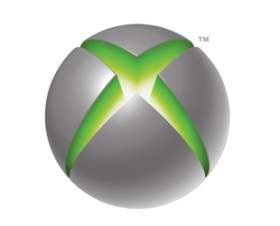** Updated Info on the Xbox One and internet connections **
In my earlier post talking covering the big Xbox One reveal
today, I got a little bit into the whole always on issue. From those who
had hands-on experience with the One, it seemed that it would be only games
that utilized Microsoft’s Azure cloud platform that would require an internet
connect to play. Well I’m very sad to report that that’s not totally the
case. Let’s hop over to the Xbox press site, where they’ve posted a Q&A describing a
lot of Xbox features. On a question on always-on, this is what they’ve
posted:
Q: Does Xbox One require an “always on”
Internet connection?
A: No, it does not have to be always connected, but Xbox One does require a connection to the Internet. We’re designing Xbox One to be your all-in-one entertainment system that is connected to the cloud and always ready. We are also designing it so you can play games and watch Blu-ray movies and live TV if you lose your connection.
A: No, it does not have to be always connected, but Xbox One does require a connection to the Internet. We’re designing Xbox One to be your all-in-one entertainment system that is connected to the cloud and always ready. We are also designing it so you can play games and watch Blu-ray movies and live TV if you lose your connection.
OK…
That doesn’t make a lick of sense!
Unfortunately for me my day job keeps me on the east coast
and without an invitation to Redmond to ask further questions on what’s going
on. Kotaku’s
Stephen Totilo on the other hand does have that opportunity.
When Stephen pressed for an answer, what he received was the
following:
“For single-player games that don’t require connectivity to
Xbox Live, you should be able to play those without interruption should your
Internet connection go down. Blu-ray movies and other downloaded entertainment
should be accessible when your Internet connection may be interrupted. But the
device is fundamentally designed to be expanded and extended by the Internet as
many devices are today.” After some more digging, here is what always
means as far as Xbox is concerned:
The Xbox One checks in with the cloud once every 24
hours.
It’s a technicality that allows Team Xbox to say that they
don’t require an always on connection to play. But it ain’t exactly
forever. So fine, instead of being shackled to a network, we’re now all…
on parole? Are the 300,000 Xbox LIVE servers my parole officers? Do
I get time off for good behavior?
I have no idea what happens if you don’t check
in every 24 hours, but I can’t imagine it’s good. I have my Xbox 360
turned completely off unless I’m playing. It’s not listening for my voice
commands, it turns on when flip a physical switch. As it stands at the
moment of writing this I haven’t turned my Xbox on in roughly a week.
With these rules on the One, am I going to be restricted because I
haven’t checked in for a week?
Anyway, no, I guess it’s not as bad as the three minute rule
that was rumored before, but it’s still something that’s a pain in the ass.
Just letting you kids know.







